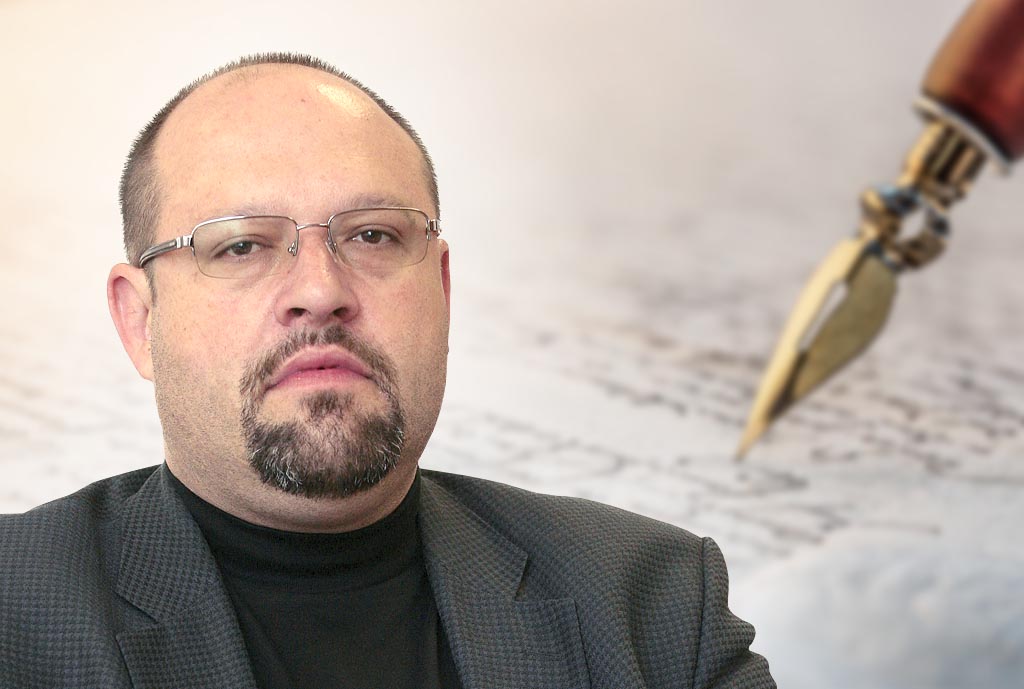By: Dr Matevž Tomšič
Now that the “freedom” reigns, some feel like they have a free rein and can practically do whatever they please. Of course, this is limited to members of the ruling nomenclature and their network. They seem to have no fear of facing any consequences for their actions.
Examples of authoritarian arbitrariness at the highest executive positions are piling up. Minister of Infrastructure, Alenka Bratušek, had a water connection installed free of charge at her weekend house, which she only recently legalised, unlike other citizens who have to pay a utility fee for it. Infrastructure must be taken care of, especially when it is your own, right? Her colleague, the Minister of Digital Transformation (whatever that means), Emilija Stojmenova Duh, used public funds to finance her attendance at the annual meeting of the World Economic Forum in China, even though the event had nothing to do with her ministerial role and she did not represent the Slovenian government there. It is a typical case of political tourism, which is quite popular among the current ruling elite (remember the visits to various exotic destinations). The third member of the government, the Minister of Culture, Asta Vrečko, arbitrarily paid a monetary award to the writer Svetlana Makarovič, even though Makarovič publicly refused the Prešeren Award, to which this money was tied. Of course, you have to reward your supporters, even if it goes against the rules. Compared to all these escapades that have been revealed recently, the recently resigned Health Minister, Danijel Bešič Loredan, was a model of correctness in carrying out his duties. In the past, ministers and other representatives of the government (Ministers Igor Maher and Aleksandra Pivec, MP Darij Krajčič) resigned for much smaller matters. Now, it seems that new standards have been set.
A special chapter is dedicated to the Mayor of Ljubljana, Zoran Janković. Criminal proceedings initiated against him are dropping like flies. Recently, this happened twice. Both times after public displays of affection between him and high representatives of the executive and judicial branches of government. First, he was hugging Justice Minister Dominika Švarc Pipan at a celebration, and then he was seen bonding with the President of the Supreme Court, Miodrag Đorđević, at a football match. A few days later, he was “miraculously” acquitted of the charges. It cannot be claimed that both representatives of state authorities directly influenced the court’s decision. However, they undoubtedly made it clear that Janković is “in good standing” with the current ruling elite.
If the Mayor of Ljubljana enjoys the favour of Slovenian state authorities, it seems that the Slovenian government enjoys the favour of the European Commission. In this year’s report on the rule of law in the EU for Slovenia, the European Commission stated that the situation in this area has improved, especially regarding media independence, with a reduction in pressure from the ruling political forces. However, the report could not be more one-sided and distorted. The situation is, in fact, the opposite. The new law on public broadcasting was an abuse purely in procedural terms (adopted under urgent procedure as if it were an emergency). It resulted in complete takeover of the institution by the left-wing – or rather, a return to their control. Furthermore, there are threats against media critical of the ruling elite. There are even persecutions of individuals and media that are not to the liking of the authorities (the case of Roman Vodeb and the show “Faktor”). It is evident that the authors of the report only considered the views of the ruling politicians and their associated civil society, while ignoring the rest. If they had approached the analysis in an impartial manner, they could have recognised that Slovenia is not ruled by the rule of law, but by the rule of the “correct” people.

